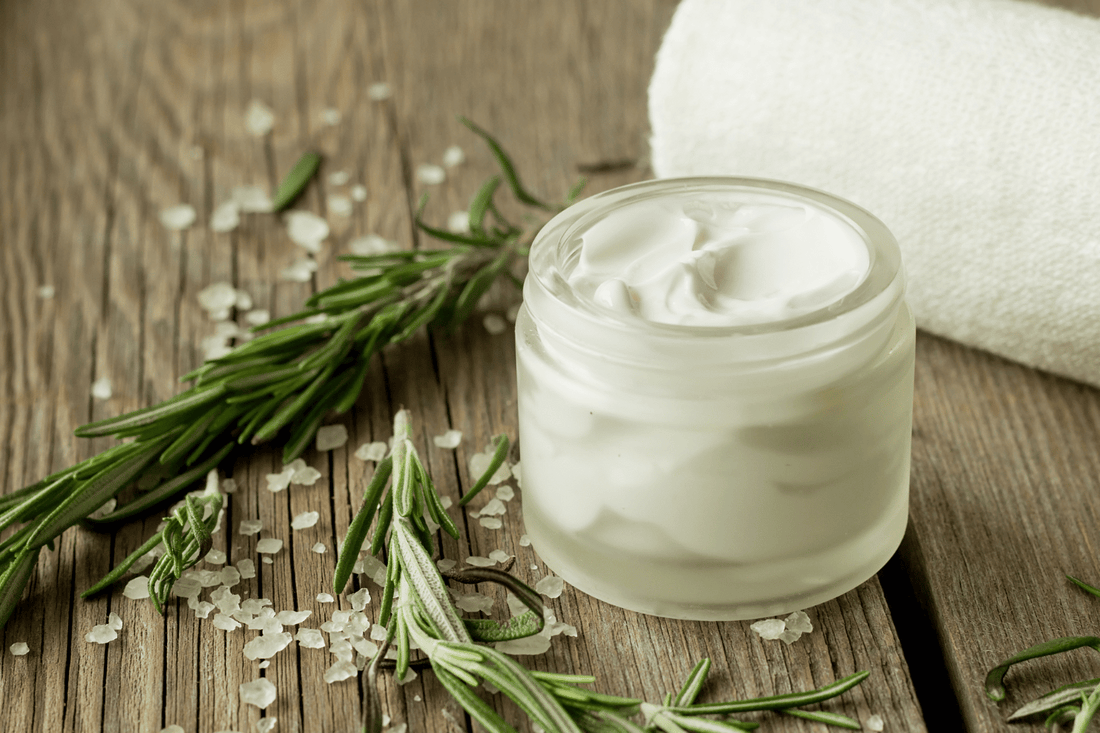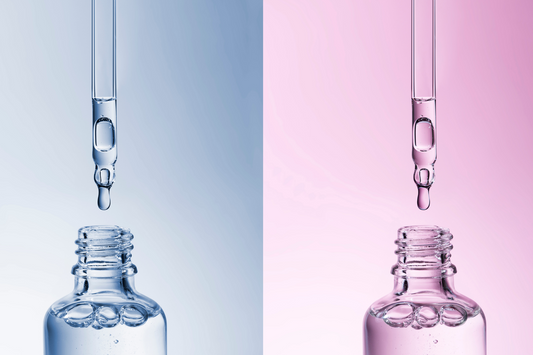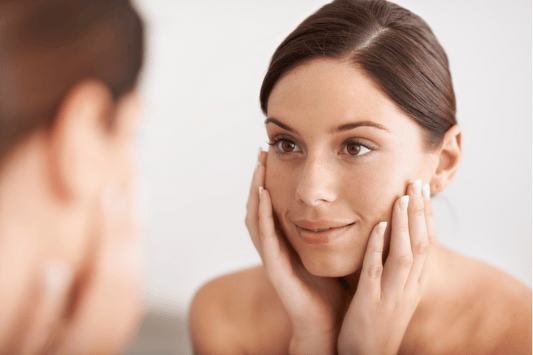How much trouble would Dorian Gray have avoided had the option of a nightly application of retinol been available in the late 19th century? Or would Oscar Wilde’s infamous character have been better off using tretinoin in his quest for eternal beauty? Perhaps Patrick Bateman’s skincare routine could have used a good old retinol purge as well. This article explains the retinol vs tretinoin difference and compares their use for anti-aging and general skin health, outlining the benefits and side effects of each. We will look, in particular, at the use of retinol and tretinoin for wrinkles, as well as highlight other impactful anti-aging options that can be used alongside retinol.
What are retinoids?
Retinoids are a family of compounds made up of Vitamin A and its natural and synthetic derivatives. Natural retinoids are obtained through animal sources like milk, fish, cheese, and other meats.
Retinoids: what are they used for?
Retinoids are necessary for a large number of biological processes, ranging from cellular growth through to vision. With regards to skin, retinoids have proved effective for use in the treatment of acne as well as for managing the appearance of aging skin.
-
Acne - retinoids are commonly used to manage acne. The use of retinoids for acne come in a variety of formulations and can be combined with certain other ingredients
-
Anti-aging - retinoids can also decrease lines and wrinkles, and improve skin tone. The impact of retinoids for wrinkles was first observed as a side effect of acne management
Is tretinoin a retinoid?
As a vitamin A derivative, both retinol and tretinoin, are considered retinoids.
Tretinoin vs retinol: the difference
Tretinoin is a metabolite of retinol. Simply put, this means that tretinoin can be formed by the human body by breaking down retinol.
The important takeaway from this is that tretinoin is essentially a more concentrated form of retinol. In other words, tretinoin is stronger than retinol. A retinol 1% product is not the same strength as a 1% tretinoin one.
Another key, practical difference is that retinol is found in many over-the-counter products, whereas tretinoin is a prescription only drug. This is because of the tretinoin vs retinol strength difference.
How much stronger is tretinoin than retinol?
Prescription tretinoin is approximately 20x more powerful than cosmetic retinol.
Is it better to use tretinoin or retinol?
Whether retinol or tretinoin is more appropriate is completely dependent on the individual concerned. Relevant factors include whether you have sensitive skin or certain skin conditions, and sometimes a person’s skin will respond in a way that is not foreseeable.
Given tretinoin’s greater strength, users are likely to see a greater impact. While using a stronger product may increase the positive impacts of retinoids, negative side effects may also be amplified. Side effects can include skin burning, irritation and dermatitis, and in some cases these can be severe.
It is quite common to use both retinol and tretinoin (not at the same time) - many people start with a cosmetic retinol product and switch to tretinoin over time.
When should I switch from retinol to tretinoin?
Tretinoin is a prescription drug, which means switching from retinol to tretinoin would require the involvement of a doctor. While over-the-counter products are convenient, the benefit of this difference between tretinoin and retinol is the opportunity to discuss the most appropriate course of action for your skin with a professional. Given everyone’s skin is different and retinoids can have nasty side effects (discussed later in this article), this discussion should minimize the risk of taking the wrong concentration or ignoring warning signs and damaging your skin.
So when is the right time to discuss transitioning from retinol to tretinoin with your doctor? If your skin has tolerated a gradual increase in the strength of retinol products without side effects, you may wish to speak with your doctor if your desired skin improvements haven’t materialized.
Retinoids for anti-aging
Retinoids were first used in dermatology for acne management. A consequence of this application was the observation that the effects of skin aging could also be altered by retinoid usage.
Tretinoin vs retinol for wrinkles
Both tretinoin and retinol have proved effective in combating the effects on the skin of intrinsic aging and photoaging. Photoaging is premature aging caused by exposure to the sun, whereas intrinsic aging (or chronological aging) includes the natural effects seen with increasing age.
Tretinoin was first observed as improving the appearance of aging skin in the 1980s, some two decades after its first dermatological application. Multiple studies have shown tretinoin to lead to improvements in fine wrinkles and coarse wrinkling, as well as hyperpigmentation and skin texture.
Retinol is also very commonly used as a wrinkle treatment. Retinol-based anti-aging products were first developed to be a milder version of the retinoids used in the 80s studies, amid safety concerns.
Retinoids side effects
Side effects are common with retinoid products. With regards to the tretinoin vs retinol decision, the greater frequency and severity of tretinoin side effects may help some people make their choice. Common side effects include burning, scaling and dermatitis, which tends to present itchy, dry or blistered skin. Another side effect is photosensitization, which is particularly common in the first months of retinoid usage. It may be necessary to avoid exposure to direct sunlight and to take more general sun protection measures while using retinoid products.
Both tretinoin and retinol can result in a temporary but significant worsening of the skin’s appearance before improvements begin. This is often referred to as a retinol purge or a tretinoin purge. This is a feature we have written about in a previous article. That article also covers another disadvantage of retinoid products - they are sensitive to light and expire, gradually becoming less effective over time.
Another point worth highlighting is that retinol use is generally not recommended during pregnancy, nor during breastfeeding. We’ve looked at this point in another article.
Skin elasticity - the key to anti-aging
While retinoids focus more on fine lines, wrinkles, and acne, one lesser discussed aspect of skin aging is skin elasticity. This refers to the skin’s ability to ‘snap back’ when altered, and plays a direct role in skin tightness, lift and tone.
Skin elasticity with age
Collagen production starts to decrease at as early as 25 years of age. In both men and women, collagen concentration has been shown to decrease at a rate of approximately 1% every year. This results in a loss of elasticity, which gradually results in a loose and droopy appearance. Thus, increasing skin elasticity ought to be a significant aspect of anti-aging efforts.

Adapted from SHUSTER, S., BLACK, M.M. and McVITIE, E. (1975), The influence of age and sex on skin thickness, skin collagen and density. British Journal of Dermatology, 93: 639-643. https://doi.org/10.1111/j.1365-2133.1975.tb05113.x
Retinol, as effective as it may be for reducing fine wrinkles, has limited efficacy for improving skin elasticity. Cosmetic retinol products try to achieve an improvement by combining retinol with additional ingredients. To achieve even minor results as a standalone ingredient, a high concentration is required, which increases the risk of side effects such as peeling and burning. A more in-depth review of skin elasticity can found in this white paper.
How to improve skin elasticity
Key to improving skin elasticity is supporting the skin’s procollagen pathway. Revela’s scientists used a cutting-edge AI engine to sift through millions of ingredients, testing safety, efficacy and specificity, to find a solution that did precisely that.
The result was Fibroquin, an ingredient which in a clinical study, improved skin elasticity by 2x compared to a leading gold standard 0.5% retinol product. Even though it is far better than retinol at improving skin elasticity, Fibroquin does not cause any of the skin irritation associated with retinoids. It’s not necessary to stop your retinol routine in order to start using Fibroquin, if you don’t wish to do so. Fibroquin Essence can be used in conjunction with retinol, making it easy to integrate into your daily skincare routine.
Dorian Gray’s troubles, then, would perhaps have best been avoided through the use of Fibroquin. One thing can be said for certain: he wouldn’t have reacted well to the common side effects of tretinoin.





